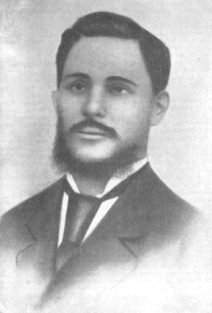 W
WJoão Capistrano de Abreu was a Brazilian historian. His works are characterized by a rigorous investigation of the sources and a critical view of the historical process. João Capistrano de Abreu was born in Maranguape, Ceará. He dedicated himself to the study of colonial Brazil. His book "Capítulos de História Colonial" is a major reference for all who study Brazilian history.
 W
WVida Amélia Guedes Alves was a Brazilian actress and pioneer of early Brazilian television whose career spanned more than seventy years. In 1951, Alves made history when she and actor Walter Forster performed the first on-screen kiss ever broadcast on Brazilian television on the early telenovela series, Sua Vida Me Pertence. In 1963, Alves made television history once again by sharing the first gay kiss shown on Brazilian television with actress Geórgia Gomide on the teleteatro show, TV de Vanguarda.
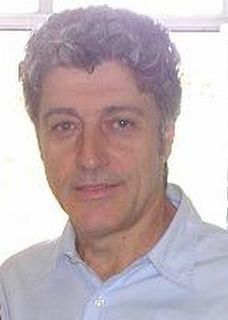 W
WCláudio Barcellos de Barcellos, known as Caco Barcellos, is a Brazilian journalist, television reporter and writer, specialized in investigative stories and documentaries about human rights, denouncing social injustice and violence. He presents the program Profissão:Repórter at TV Globo.
 W
WEugênio Bucci (Orlândia) is a Brazilian journalist, known for his works at many Brazilian publications and also for his time as president of Radiobras.
 W
WAlex Canziani Silveira is a Brazilian politician as well as a lawyer and writer. He has spent his political career representing Paraná, having served in the state legislature from 1999 to 2019.
 W
WSonia Corrêa is a feminist activist and researcher from Brazil, working primarily on issues of gender equality, health and sexuality. Since 2002, she has co-chaired Sexuality Policy Watch (SPW), a global policy forum analysing global trends in sexuality related policies and projects.
 W
WPalmério Dória is a Brazilian journalist and writer, ex-director of Sexy magazine and author of a number of books.
 W
WBoris Fausto is a Brazilian historian, political scientist and writer.
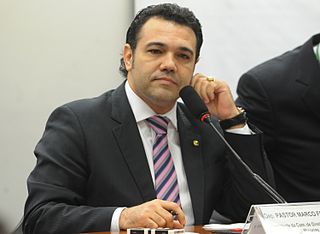 W
WMarco Antônio Feliciano is a Brazilian politician as well as a pastor, writer, film producer, and theologian. He has spent his political career representing São Paulo, having served as federal deputy representative since 2011. A polarizing figure in Brazilian politics due to his outspoken conservative views, his election to president of the commission on human rights and minorities caused controversy and protest due to Feliciano's comments regarding Africans, LGBTQ individuals, women, Catholics, among others.
 W
WFrancisca Praguer Fróes was a Brazilian physician, activist, feminist, and writer. She was one of five women in Brazil to complete a degree of higher education in 1893.
 W
WMelanie "Mel" Nunes Fronckowiak is a Brazilian actress, writer and TV host. Mel became known after starring in several advertising and TV commercials at the time she worked as a model in SP, at the Ford Models agency, which led her to participate in the Brazilian version of the youth soap opera Rebeldes, playing the character Carla. In 2013, Fronckowiak launched herself as a writer. In her first book, Unclassifiable: Memories of the Road, she tells the experiences she lived traveling around 40 Brazilian cities with the band Rebeldes.
 W
WLaurentino Gomes is a Brazilian journalist and writer. He is best known as the author of the trilogy of books that cover the history of Brazil and Portugal during the 19th century. He has already released two of the three books: 1808, about the transfer of the Portuguese Court to Brazil; and 1822, about the Independence of Brazil. He is about to release the third and final book of the series, 1889, about the Proclamation of the Republic.
 W
WRosana Hermann is an author, writer and host in Brazil. Her last program was "Atualíssima" with Leão Lobo on Rede Bandeirantes, and is also a columnist for several blogs, including 'Querido Leitor'.
 W
WRicardo Kotscho is a Brazilian journalist and author. He was awarded twice with the Esso Journalism Award and twice with the Vladimir Herzog Award. During his career, he worked in several major newspapers, magazines and TV channels, such as O Estado de S. Paulo, IstoÉ magazine, Folha de S. Paulo, Canal 21 of Rede Bandeirantes, SBT and CNT/Gazeta. From 2003 to 2004, he served as the Secretary of Press and Divulgation of the Presidency of the Republic for Lula's government. Nowadays, he is a Special Reporter for Brasileiros magazine.
 W
WDanuza Leão is a Brazilian model, socialite, journalist, writer, and actress.
 W
WElon Lages Lima was a Brazilian mathematician whose research concerned differential topology, algebraic topology, and differential geometry. Lima was an influential figure in the development of mathematics in Brazil.
 W
WOlga Maynard. Writer and educator on theater arts, author of articles and monographs on dance and dancers. Her published books are on ballet, modern dance, opera and the integration of performing arts into general education. She lectured widely and was active internationally as dance historian and liberal arts educator—also as critic, jurist and consultant. She published hundreds of articles, reviewing most of the leading figures and institutions of the ‘dance boom’ of the mid 1960s into the 1980s, interacting with leading figures and institutions in the arts, notably dance.
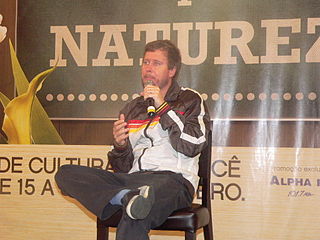 W
WLeandro Narloch is a Brazilian journalist and writer. He worked as a reporter at Veja magazine and as an editor at Aventuras na História and Superinteressante magazines, all published by Grupo Abril.
 W
WJoão W. Nery, was a Brazilian writer, psychologist, and LGBT activist. He is known to be the first transgender man to have undergone sex-change surgery in Brazil; it took place in 1977.
 W
WEdson Arantes do Nascimento, known as Pelé, is a Brazilian former professional footballer who played as a forward. Regarded as one of the greatest players of all time, he was among the most successful and popular sports figures of the 20th century. During his playing days, Pelé was for a period the best-paid athlete in the world.
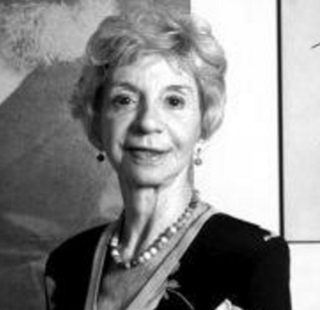 W
WHeleieth Iara Bongiovani Saffioti was a Brazilian sociologist, teacher, and feminist activist.
 W
WArkan Simaan is a French novelist.
 W
WBruna Surfistinha is the pen name of Raquel Pacheco, a Brazilian former sex worker who attracted the attention of Brazilian media by publishing, in a blog, her sexual experiences with clients. Bruna explained in television programs that she was a normal girl, who had been adopted by a high/middle-class family but that at around the age of 17 she left her home and her family because of the traditional family oriented views of her father and to start to live on her own. Bruna appeared in various television programs in Brazil and several periodicals and magazines. Her blog attracted more than 50,000 readers per day. She appeared in some pornographic films in Brazil. In 2005, she released a book entitled O Doce Veneno do Escorpião. In just over a month it sold over 30,000 copies in its third edition, and became the best selling book in Brazil. The book was translated into English and published by Bloomsbury Publishing in 2006. Bruna's book also inspired the 2011 Brazilian film Confessions of a Brazilian Call Girl, starring Deborah Secco in the main role, and the 2016 TV series Me Chama de Bruna, starring Maria Bopp in the main role. In 2011, Bruna also appeared in a Brazilian reality show called A Fazenda finishing as the second runner-up. Confessions of a Brazilian Call Girl grossed $12,356,515 in Brazil, first national film after international films in the Brazil 2011 Box Office, thanks to Bruna's popularity with the Brazilian public.
 W
WCarlos Alberto Tramontina and commonly known simply as Carlos Tramontina is a Brazilian journalist.
 W
WZuenir Carlos Ventura is a Brazilian journalist and writer. He is a columnist for the newspaper O Globo, and for Época magazine. He won the Jabuti Prize in 1995 in the "reportage" category for the book Cidade Partida. In 2009, his book 1968 - O que Fizemos de Nós won the third place at the same category of the prize. In 1989, he and his team of journalists from Jornal do Brasil won the Esso Journalism Award for their reportage on Chico Mendes' murder investigation.
 W
WAlba Maria Zaluar was a Brazilian anthropologist, with emphases in urban anthropology and in anthropology of violence. In 1984, she obtained her PhD in social Anthropology at the Federal University of Rio de Janeiro.
 W
WFlavio Zveiter is a Brazilian lawyer and professor, former President of the Superior Court of Sport Justice, highest body of Sport Justice in Brazil.